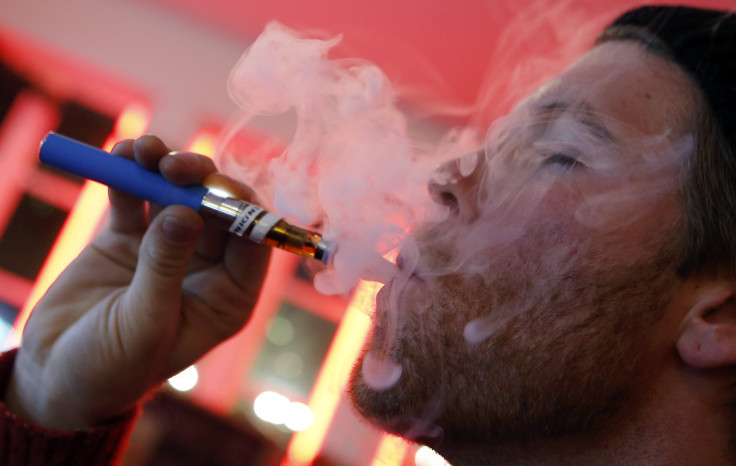FDA Proposes Banning E-Cigarette Sales To Minors But Does Not Restrict Flavors And TV Ads; Proposal Includes Restrictions On Other Tobacco Products

The Food and Drug Administration, or FDA, proposed rules on Thursday that would ban the sale of e-cigarettes to minors and require manufacturers to add health warning labels, but would not restrict flavored products and online sales or television advertisements of the devices.
The FDA's proposal, which follows the growing popularity of e-cigarettes that generate $2 billion a year in revenues in the U.S., includes regulating e-cigarettes, cigars, pipe tobacco, nicotine gels, water pipe tobacco and hookahs, and making it mandatory for manufacturers to register their products with the agency. The new measures also propose a health warning on e-cigarettes stating that nicotine is addictive and seek to restrict the distribution of free samples, reports said, adding that many public health advocates were disappointed because restricting flavors and advertising were not part of the proposal.
"This is an important moment for consumer protection," Margaret Hamburg, the FDA commissioner, reportedly said, noting tobacco remains "the leading cause of death and disease in this country." Any further rules "will have to be grounded in our growing body of knowledge and understanding about the use of e-cigarettes and their potential health risks or public health benefits."
Mitchell Zeller, director of the FDA's Center for Tobacco Products, reportedly said that regulators are yet to reach a conclusion on scientific evidence for a ruling on flavored products.
"There are far more questions than answers," he reportedly said, adding that the new regulation would pave way for additional rules in the future, as health advocates argued that flavors would appeal to youngsters and unrestricted advertising would portray the products as glamorous to an impressionable audience.
A September 2013 study by the U.S. Centers for Disease Control and Prevention found that the percentage of high school students who had tried e-cigarettes had more than doubled within a year to 10 percent in 2012 from 4.7 percent in 2011.
According to USA Today, Vince Willmore of the Campaign for Tobacco-Free Kids, an anti-smoking group based in Washington D.C., said: "It's taken more than three years to issue a proposed rule, which we think is inexcusable."
"It's allowed a Wild West marketplace with irresponsible marketing and no control over the product," Willmore told USA Today, adding that the FDA should quickly finalize on the rules.
The proposal is subject to a public comment period of 75 days, and companies will have two years to submit applications from the time the rule comes into existence. According to Reuters, the current proposal would include e-vaping products and other tobacco products, but premium cigars, which come wrapped in whole tobacco leaf, may be excluded.
Earlier this month, a group of Democrats in Congress, including Rep. Henry A. Waxman of Beverly Hills, accused e-cigarette manufacturers of targeting minors with marketing tactics that would be illegal if used for traditional cigarettes, according to a Los Angeles Times report.
"With over a million youth now using e-cigarettes, FDA needs to act without further delay to stop the companies from marketing their addictive products to children," Waxman reportedly said, at the time.
© Copyright IBTimes 2025. All rights reserved.





















